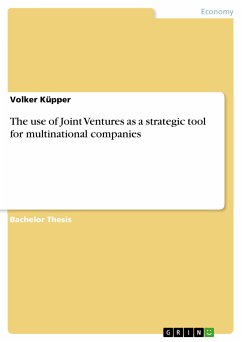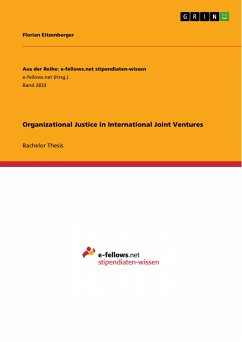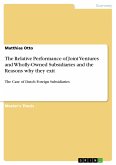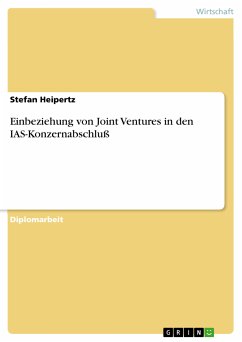Bachelor Thesis from the year 2008 in the subject Business economics - Business Management, Corporate Governance, grade: 1,0, Edinburgh Napier University (Edinburgh Napier University), language: English, abstract: The dissertation covers the field of competitive collaboration by focusing on Joint Ventures. It identifies the strategic usefulness for multinational companies by evaluating critical success factors and pre-conditions. Due to increasing pressure from the business environment the trend of competitive collaboration has accelerated. In this context, Joint Ventures were identified as a potential field of investigation. The apparent contradiction of cooperating with a competitor evoked the discussion of potential risks. It was questionable whether companies do so loose some of its sovereignty. This question created the incentive to identify essential requirements when forming a Joint Venture. By analysing the available literature, Joint Ventures were identified as a strategic tool for multinational companies to achieve competitive advantage. It was outlined that the risks that come along with competitive collaboration can be minimized if the preconditions of Joint Venture creation are considered adequately. Moreover, the analysis clarified the need for explicit responsibilities for each sub-process when forming a Joint Venture. The analysis of a specific case highlighted the essential learning potential from past cooperations in order to succeed over the long term. Finally, the analysis showed that well structured and re-arranged measures leverage the benefits of competitive collaboration. It was identified, that a loss of sovereignty only occurs if the alliance is managed poorly. It was recommended that a three stage model, including the sub-processes “alliance planning”, “partner selection” and “alliance structure and management”, should be implemented to generalise the process of alliance management. Moreover, setting a focus on strategic and cultural compatibility between the partners was evaluated as being important to maintain the health of the alliance over the long term. The dissertation outlined that especially multinational companies, whose strategy considerably depends on alliance partners, should strive to institutionalise the alliance management. Finally it was recommended, that gatekeepers should be implemented rather than abolished. A controlled flow of information and the importance of keeping each company’s ompetitive advantage were seen as being essential.









